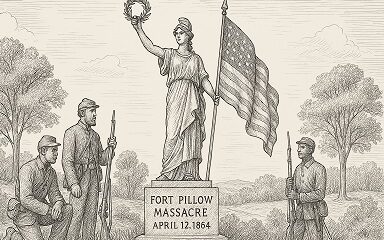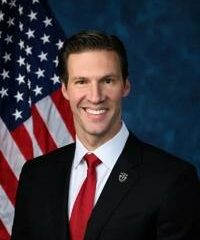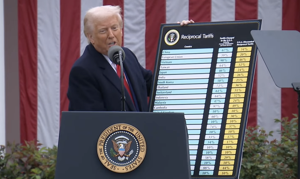Mississippi Today
State health department braces for impending hospital crisis
State health department braces for impending hospital crisis
As the Mississippi health care crisis worsens and threatens to imminently shutter hospitals in the Mississippi Delta, the state Department of Health is taking steps to prepare for the impending disaster.
The Mississippi State Department of Health, an agency that has been gutted by budget cuts and weakened services over the past decade, was not staffed nor funded to take on the full burden of replacing health care services lost if hospitals close.
But State Health Officer Dr. Daniel Edney recently told lawmakers the department, in anticipation of an increase of health care deserts in the Delta, has begun assessing how it can help.
“We’re studying where health care deserts are emerging or we think they’re going to be,” Edney told members of the Senate Public Health Committee on Nov. 21, adding that the Health Department increasing services is “usually not a good thing.”
“We’re the provider of last resort,” he continued. “We’re there for public health. When you see us in perinatal care, hypertension, diabetes management – that means these communities aren’t being served.”
While more than 38 hospitals across the state are at risk of closing, the Mississippi Delta — the poorest region of the state with already dismal health outcomes — is most susceptible to the crisis. In August, the Delta’s only neonatal intensive care unit in Greenville closed. Greenwood Leflore Hospital has eliminated labor and delivery and other major services over the last several months. Today, the Greenwood hospital’s future is uncertain after negotiations with the University of Mississippi Medical Center to enter into a lease agreement abruptly fell through last month.
Additionally, Sharkey Issaquena Hospital and several other Delta hospitals are in dire financial straits.
A recent report from the Center for Healthcare Quality and Reform shows that over half of rural hospitals in Mississippi – or 38 – are at risk of closing. The state has the highest percentage of rural hospitals at immediate risk of closing in the nation, and hospitals as a whole are in a deficit of more than $200 million in 2022, according to the Mississippi Hospital Association.
A 2019 report from the consulting firm Navigant revealed a similar statistic as the one from 2022: half of rural hospitals were at risk of closure then, too. But the difference now is the severity of the situation, said Ryan Moore, executive director of the Mississippi Rural Hospital Association.
“Hospitals that were bleeding slowly are now bleeding quicker,” said Moore. “But the underlying problem is still the same.”
A 2019 report from the consulting firm Navigant revealed a similar statistic as the one from 2022: Half of rural hospitals were at risk of closure then, too. But the difference now is the severity of the situation, said Ryan Moore, executive director of the Mississippi Rural Hospital Association.
“Hospitals that were bleeding slowly are now bleeding quicker,” said Moore. “But the underlying problem is still the same.”
With no clear solutions in sight, Edney said the Health Department will do what it can to strengthen the “safety net” in these underserved areas.
“We’ve already got an action plan in place,” Edney told lawmakers.
But when Mississippi Today followed up with the state Health Department and submitted a records request for that plan, department officials responded “… as of now we have no plan on paper.”
Mississippi Today then asked for clarification and details of the plan Edney referenced. A Health Department spokesperson emailed a statement from Jim Craig, senior deputy and director of health protection.
“Our next steps in plan development will be to meet with Delta Community Health Center leaders and coordinate needs and efforts with our Field Services office that coordinates care in county health departments around the state,” the statement read.
Mississippi Today then asked for an interview with Craig or someone else with the department, and the reporter was told she could email questions.
The department said it is “currently evaluating” what services might be needed when responding to a question about whether the focus would first be on the Delta and maternity and infant care.
“Maternal and infant services are one of the service areas we are evaluating,” said Craig in the email.
The state Health Department has closed 10 county health departments in the past decade, nine of which were closed in 2016. It also reduced hours in “several” county health departments around the state, though department officials declined to provide a specific number.
In 2016, it announced it would no longer be providing maternity services at the county health departments.
The Health Department’s mission is to promote and protect the health of Mississippians. The agency does surveillance for diseases such as West Nile virus, flu and sexually transmitted infections, offers disease and injury prevention programming and information and other public health efforts. It also oversees drinking water testing, restaurant permits and inspections, on-site wastewater and sewage system regulation. It is responsible for licensing and regulating child care facilities, nursing homes, and other health care facilities.
There is no timeline for the implementation of the safety net Edney referred to, the department said.
This article first appeared on Mississippi Today and is republished here under a Creative Commons license.
Mississippi Today
On this day in 1864, Confederates kill up to 300 in massacre
The post On this day in 1864, Confederates kill up to 300 in massacre appeared first on mississippitoday.org
Mississippi Today
Mississippi prison death under investigation
The Mississippi Bureau of Investigation is investigating the death of an inmate at the Central Mississippi Correctional Facility earlier this year.
Prison officials reportedly told Mississippi authorities that inmate Melvin Cancer had suffered a heart attack, but a recent autopsy has since ruled his death a homicide.
“I’d like for it to be thoroughly investigated to see what did happen,” said Juan Barnett, chairman of the Senate Corrections Committee. “Even though people in prison have committed crimes, I still believe in humane treatment for everybody.”
After fellow inmates at Central Mississippi Correctional Facility repeatedly complained that Cancer would not bathe, prison officials reportedly dragged him into the shower, where he may have suffered fatal injuries.
On Jan. 22, Cancer was declared dead at the University of Mississippi Medical Center. The 53-year-old inmate had been serving eight years in prison after pleading guilty to a 2019 aggravated assault in Hinds County.
Jeremy St. Julian is the third person to serve as superintendent at the Central Mississippi Correctional Facility in less than a year. Some staff members have reportedly been placed on administrative leave.
“Either we’re hiring bad people, or we need to look at the people doing the hiring,” Barnett said. “There has to be some accountability somewhere.”
Public Safety Commissioner Sean Tindell said he could not comment on the matter. The Mississippi Department of Corrections did not respond to a request for comment.
This article first appeared on Mississippi Today and is republished here under a Creative Commons Attribution-NoDerivatives 4.0 International License.
Mississippi Today
A self-proclaimed ‘loose electron’ journeys through Jackson’s political class
The day after Tim Henderson finished third in Jackson’s mayoral primary, garnering 3,499 votes, the retired Air Force lieutenant colonel was planning to pack up his office at the Jackson Medical Mall and be out by the end of the week.
Henderson figured that’s what losing candidates do. Then he said his older brother gave him a different perspective: Henderson had just established a base of people who had rejected the city’s status quo, and he shouldn’t let them down.
“That’s what happens all the time,” Henderson said. “Candidates show up, they don’t win, the stuff they talked about doing, they walk away, and they leave the people hanging, which is partly, probably why people have lost faith in the process.”
As the 54-year-old space industry consultant spoke with friends, family and politicos last week, he began to look at those 3,499 votes differently. Instead of an outright loss, the numbers seemed to represent something remarkable: In a city where name recognition is king, it took less than a year for Henderson to go from a name few knew to finishing just 786 votes shy of the incumbent, Mayor Chokwe Antar Lumumba.
He did it with a handful of volunteers and few connections to the city’s powerbrokers or politically connected church leaders or nonprofits. In fact, Henderson thinks his relatively little clout is precisely why he did so well.
“People insulate themselves inside of certain circles, and the problem a lot of people have with Henderson is I wasn’t connected or associated with any of those cliques,” he said. “People immediately started asking, who knows him?”
Now, Henderson is contemplating what he’s going to do next.
“I can be the mayor of the city hall, or I can be the mayor out here on the streets,” he said.
Beholden mainly to God and the truth, he said, he’s ready to talk – with little filter – about what Jackson needs to anyone who wants to listen. He described himself as “a loose neutron, or a loose electron, free radical.”
“Not radical in the sense of ‘radical’ but somebody that doesn’t have to be guarded in how I do things,” he said, adding, “Now I can say things other people can’t say and I can represent things the right way.”
He’s not sure he’ll endorse anyone. Henderson said that in the past week, he’s met with the Lumumba campaign, as well as state Sen. John Horhn, whose 12,359 votes nearly preempted a runoff. To win the Democratic nomination outright, Horhn would have had to secure around 500 of the votes Henderson or 10 other candidates received.
Both asked what their campaigns needed to do to get Henderson’s support. He says he told them the same thing: Start an Office of Ethics and Accountability, one of his chief campaign goals.
He wouldn’t say which candidate said what. But one told him they weren’t sure the city had the funding for it. He recalled the other asked if Henderson would work with them if they started an Office of Integrity, to which Henderson responded “only by my rules.”
Through a spokesperson, Horhn said he wants to bring more accountability to the city’s procurement process and that his ongoing discussions with Henderson have been “productive.”
Horhn has been a senator representing parts of Jackson since the 1990s, and Lumumba is finishing his second term as mayor. If nothing has changed in the city in the last eight, or 32, years, Henderson reasons that’s because the people with power and connections, including those behind the scenes, don’t want change.
When Henderson moved back to the city two years ago, the Cleveland, Miss. native and Mississippi Valley State University graduate moved in with his brother, who lives in south Jackson.
The retired military man had two goals in mind: Develop the vacant lots he owns near the Westside Community Center — a neighborhood called “the Sub” — and start a gourmet grocery store in downtown Jackson, hopefully on the first floor of the Lamar Life building owned by longtime downtown Jackson developer Andrew Mattiace.
Henderson said he couldn’t find the funding – a common refrain in Jackson – or secure meetings with folks who might provide the funding. Still, his business endeavors bore political fruit as he met people he said encouraged him to run for mayor. That included Robert Gibbs, an attorney and developer who was working to convene a group of community and business leaders to secure a new city leader. The coalition assumed the name Rethink Jackson.
Last year, Gibbs invited Henderson to meet with Rethink Jackson members and others at the Capital Club, a highrise bar owned by Mattiace. The group was looking for a candidate to support, but Henderson recalled that Gibbs told him the meeting was not “an endorsement.”
But when Henderson arrived, he says they kept him waiting in the lobby for 30 minutes before finally calling him up to meet with the dozen or so people in the room – mostly African American leaders – who were sitting at tables around the bar.
Gibbs was there, so were Mattiace and Jeff Good, a local restauranteur.
“Before we move forward, I want to make sure the air is clear: This is not an endorsement,” Henderson recalled telling the room. “And they’re like no, nope, it’s not an endorsement. I say well let me be clear you may not hear what you want to hear this evening. I’m only going to share what I’m comfortable sharing, because what I’m not going to do is have my information travel all across the city. Is that fair? That is fair, right? OK, so let’s talk.”
When the group asked about economic development, Henderson said he brought up the Capitol Police, saying “I don’t care how much police security you put down here, you gotta put something in the parts of the city where people live,” meaning both safety and opportunity in west and south Jackson.
“They can only rob other poor people so much,” Henderson said, to which he recalled the folks in the room “just looked at me.”
Mattiace said he preferred not to comment on the election so he could remain neutral for the sake of his business. Good said he did not have a good memory of the meeting but added he thinks Henderson is a “good guy” and that’s why he did well at the polls.
Gibbs didn’t comment on the meeting but said he’s heavily involved in the Horhn campaign and doesn’t want to hurt it. He did speak to Rethink Jackson as a coalition, adding that the group also met with Horhn, Delano Funches, and Rodney DePriest, an independent, “to identify the person we felt would be the best person to lead the city of Jackson.”
After meeting with him, Henderson said he told one of the folks that he wouldn’t be back – he had a campaign to run. He didn’t hear from the group again.
Rethink Jackson debated and took a vote on which candidates “could come in on day one and start doing the things we felt the city needed in order to turn around,” Gibbs said.
“We had a vote, paper ballot voting, that we took so that people could not necessarily be influenced by someone who was in the room,” he added.
Out of about 50 people, Gibbs said only one person was unsure of Horhn. The endorsement was a campaign score for the senator.
It wasn’t just the business community Henderson says did not ultimately align with his campaign. When he talks about the status quo he wants to undo, he means nonprofits, too.
On the campaign trail, Henderson committed to personally screening all nonprofits that receive city grant funds. He wanted to send out screening criteria, categorize all the buckets of grant funding the city was dispersing, and meet with each nonprofit. But if they didn’t show up, he said he would contact their other funders.
He called this “a dogwhistle” – a tell that he was on to them.
“You’re using my data,” he said. “As the mayor, it’s my data. And if you’re supposed to be working in this city, I want to know outcomes.”
Jackson has an excess of nonprofits, Henderson said, that are all working to tackle similar social ills, from decreasing homelessness and youth violence to improving mental health. Some are doing good work and should be supported to leverage their resources. But for others, those missions are a “smokescreen,” Henderson said, and the problems remain. Coincidentally, this is a similar campaign pillar of conservative talk radio host and independent mayoral candidate Kim Wade.
“Here’s my concern: Things aren’t getting better because people don’t want them to get better,” Henderson said. “If you keep crime high, poverty high, you keep the education system where it is, you keep housing, the lack of affordable housing high, you keep jobs at the minimum wage – the only thing people have as an entry point, there’s no upward mobility. This city will never be what it can be. … Because if you wanted change, you’d work yourself out of a job.”
Within city hall, Henderson said he wanted to “clear the slate” by rehiring every department head, putting out job descriptions, and hiring candidates with a blind application – no names, race or gender attached – to ensure that a person’s “connections” were not taken into account.
“Those connections over time is why we are the way we are,” he said. “Because the most qualified person is not who you’re hiring. You’re hiring someone connected to you.”
Make no mistake: Henderson made connections, too. He said two names include Shirlene Anderson, a former chief of police under Frank Melton, and Hank Anderson, a retired administrator for IBM who worked in former governor Ray Mabus’s administration. Anderson had approached Henderson after the February debate at Duling Hall and later advised him on how to keep his message straight.
After that, Henderson made a point to answer questions as directly as he could during the candidate forums. He said he stressed: “public safety, cleaning it up, public safety, cleaning it up.”

“Everybody else is talking about economic development and all this other stuff,” he said. “I’m like, either you don’t know what you’re talking about, or you’re playing the people, or it’s both. I’m like no, you can’t get any economic development with crime the way it is.”
But perhaps the most important connection Henderson made during his run for office was with Sherri Jones, the first person to join the campaign and the station manager at WMPR.
The pair formed a kinship over their deep skepticism of the city’s elite — Black and white, activists and church leaders, and especially the politicians and the business owners who seem to be looking out for their bottom line and not for the entire community.
“You got two things you gone have to be aware of,” Jones said. “One is racism. The other is classism. Now, when you deal with the classicism, it’s about a certain group of people and a lot of them are African American and then they are connected with white people and they don’t really care if there’s racism involved or not because they got a certain agenda and it’s gonna always come back and be tied to money.”
From the perspective of the leaders at the Capital Club, the business community wants to help Jackson, so finding a mayor who works with them will result in economic advancement across the city.
Jones saw it differently.
“It’s about contracts, it’s about being in charge of the decision, what’s going to stay open, what’s going to close, how things move,” Jones said.
Nothing will change in Jackson if economic development does not include the entire city, Henderson said. South and west, too.
The primary “wasn’t just about low voter turnout,” he said. “It actually speaks to the psychological impact that the environment and the quality of life has had on people, where they totally felt dejected, rejected and disconnected.”
What he wants most of all is to bring back people’s confidence in Jackson and knows it won’t happen overnight.
“It’s about empowering the people in the city to be able to believe in it again,” Henderson said.
How’s he going to do that? He might start a nonprofit.
Editor’s note: Mississippi Today is moving this summer into the Lamar Life Building, operated by Andrew Mattiace, in downtown Jackson.
This article first appeared on Mississippi Today and is republished here under a Creative Commons Attribution-NoDerivatives 4.0 International License.![]()
-

 News from the South - Alabama News Feed7 days ago
News from the South - Alabama News Feed7 days ago‘Hands Off!’ Protest Held in Huntsville Saturday | April 5, 2025 | News 19 @ 9 P.M.
-

 News from the South - North Carolina News Feed6 days ago
News from the South - North Carolina News Feed6 days agoProposal: American military base retailers would exclude 4 hostile nations | North Carolina
-

 News from the South - Louisiana News Feed5 days ago
News from the South - Louisiana News Feed5 days agoNew Orleans police investigating hit-and-run crash in Seventh Ward; family says grandmother was hurt
-

 News from the South - Virginia News Feed5 days ago
News from the South - Virginia News Feed5 days agoTariffs spark backlash in Virginia over economic impact | Virginia
-

 News from the South - Kentucky News Feed5 days ago
News from the South - Kentucky News Feed5 days agoVersailles asked to conserve water, county steps in to help
-

 News from the South - Florida News Feed7 days ago
News from the South - Florida News Feed7 days ago‘This has got to be a moment in America,’ Cory Booker tells 1st town hall since record speech
-

 News from the South - Missouri News Feed7 days ago
News from the South - Missouri News Feed7 days agoMajor flooding around St. Peters after heavy rains
-

 Local News6 days ago
Local News6 days agoSouthern Miss Alumna Honored by White House with Prestigious Presidential Award for Excellence in Mathematics and Science Teaching














































